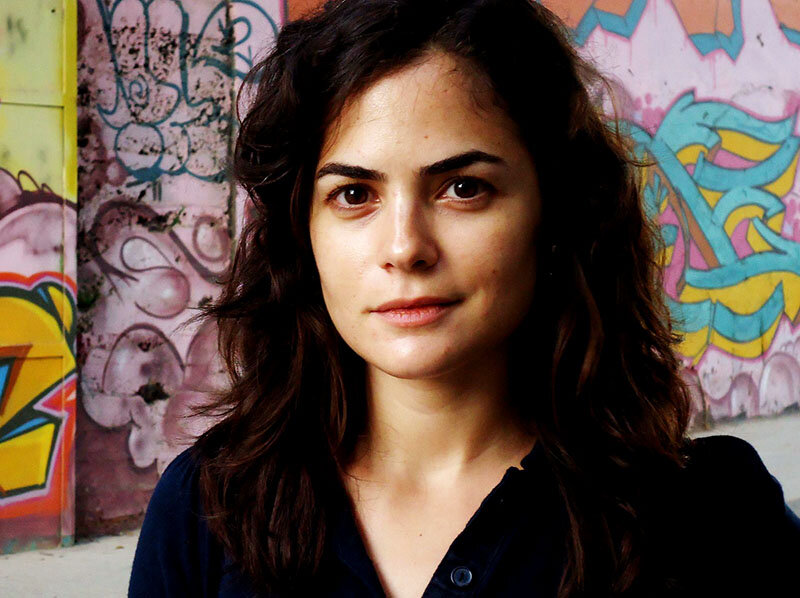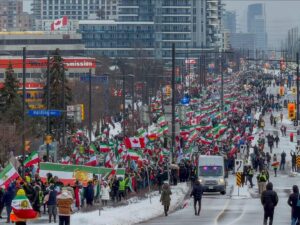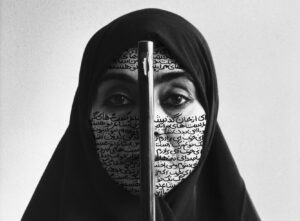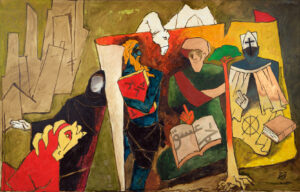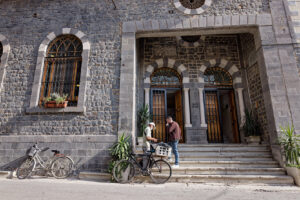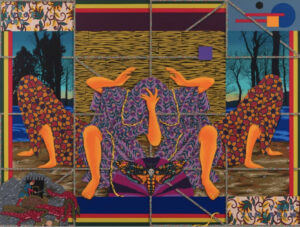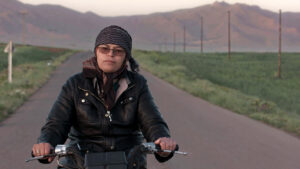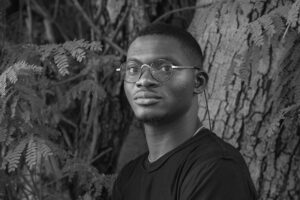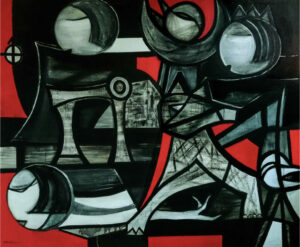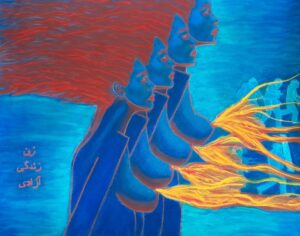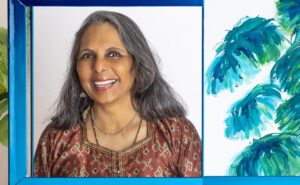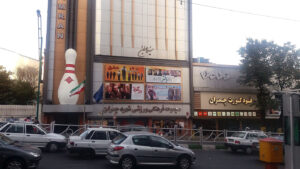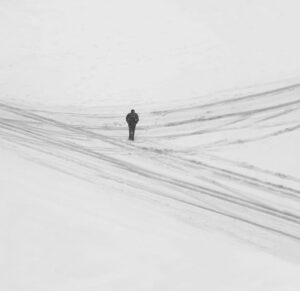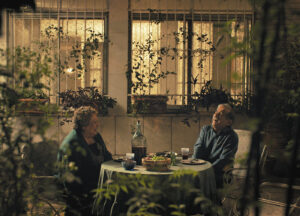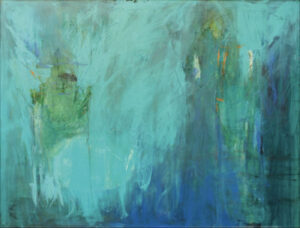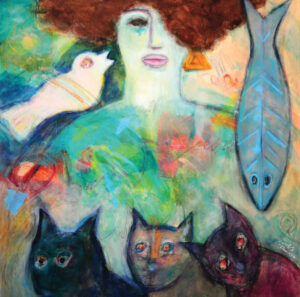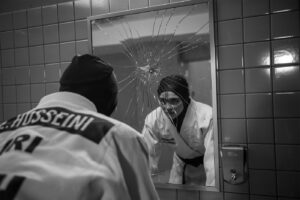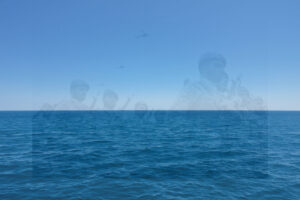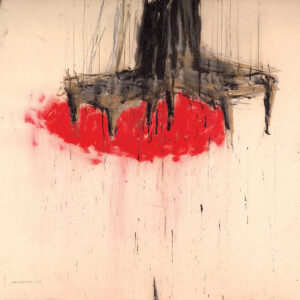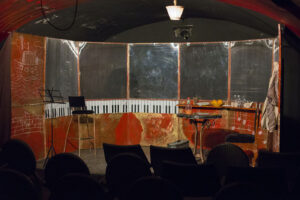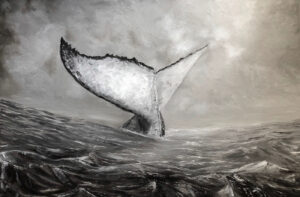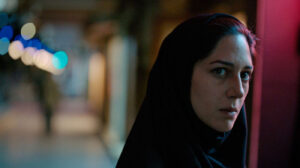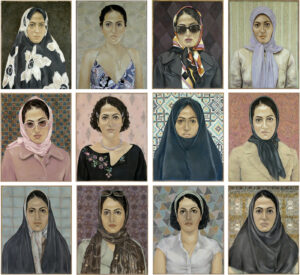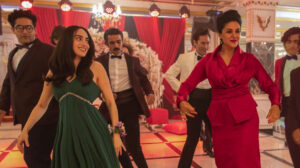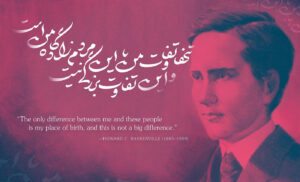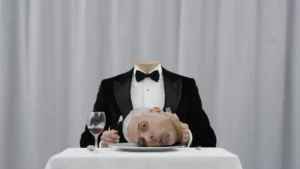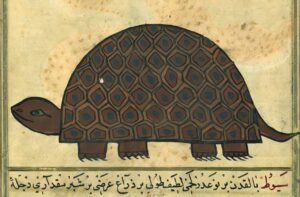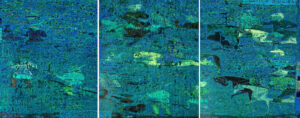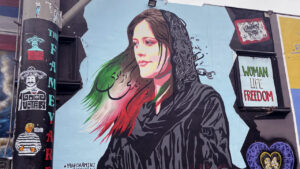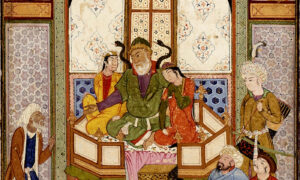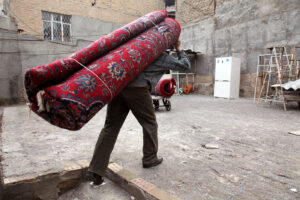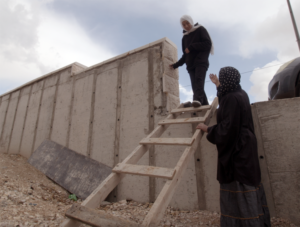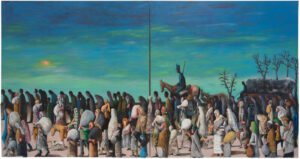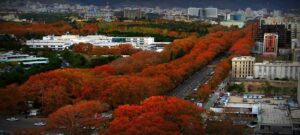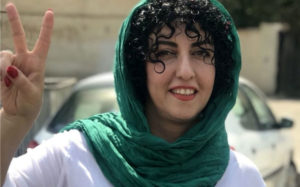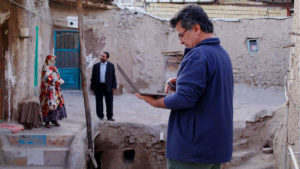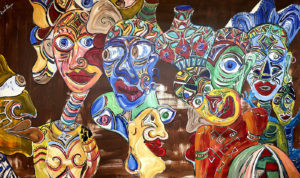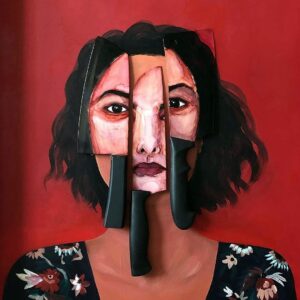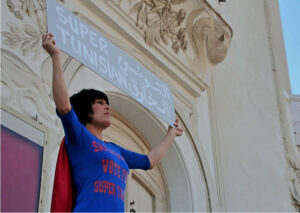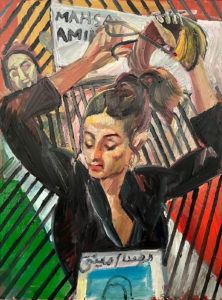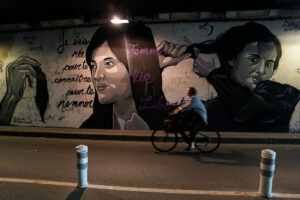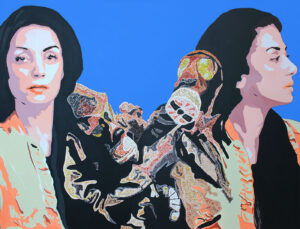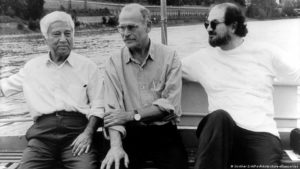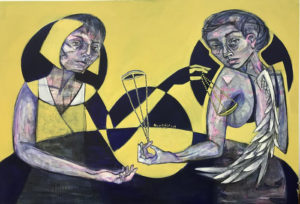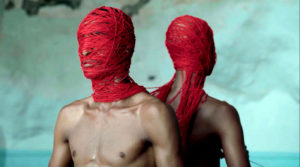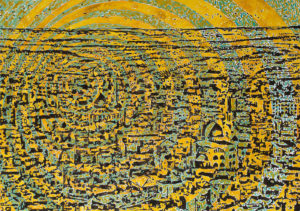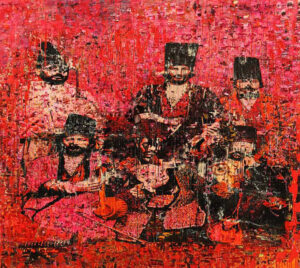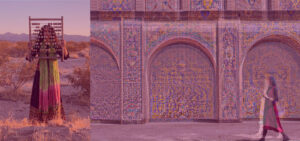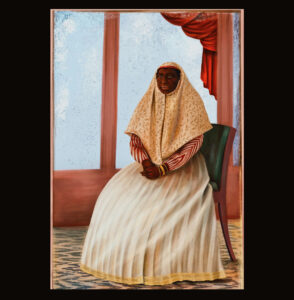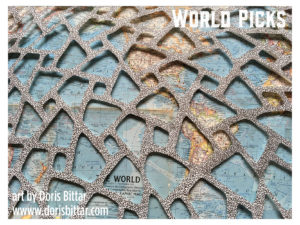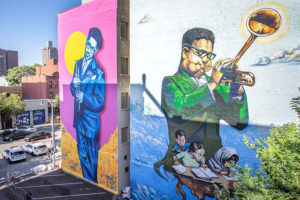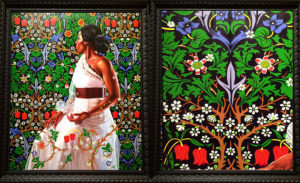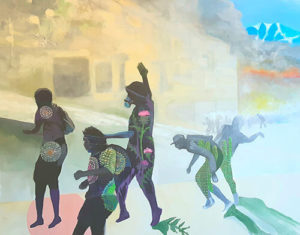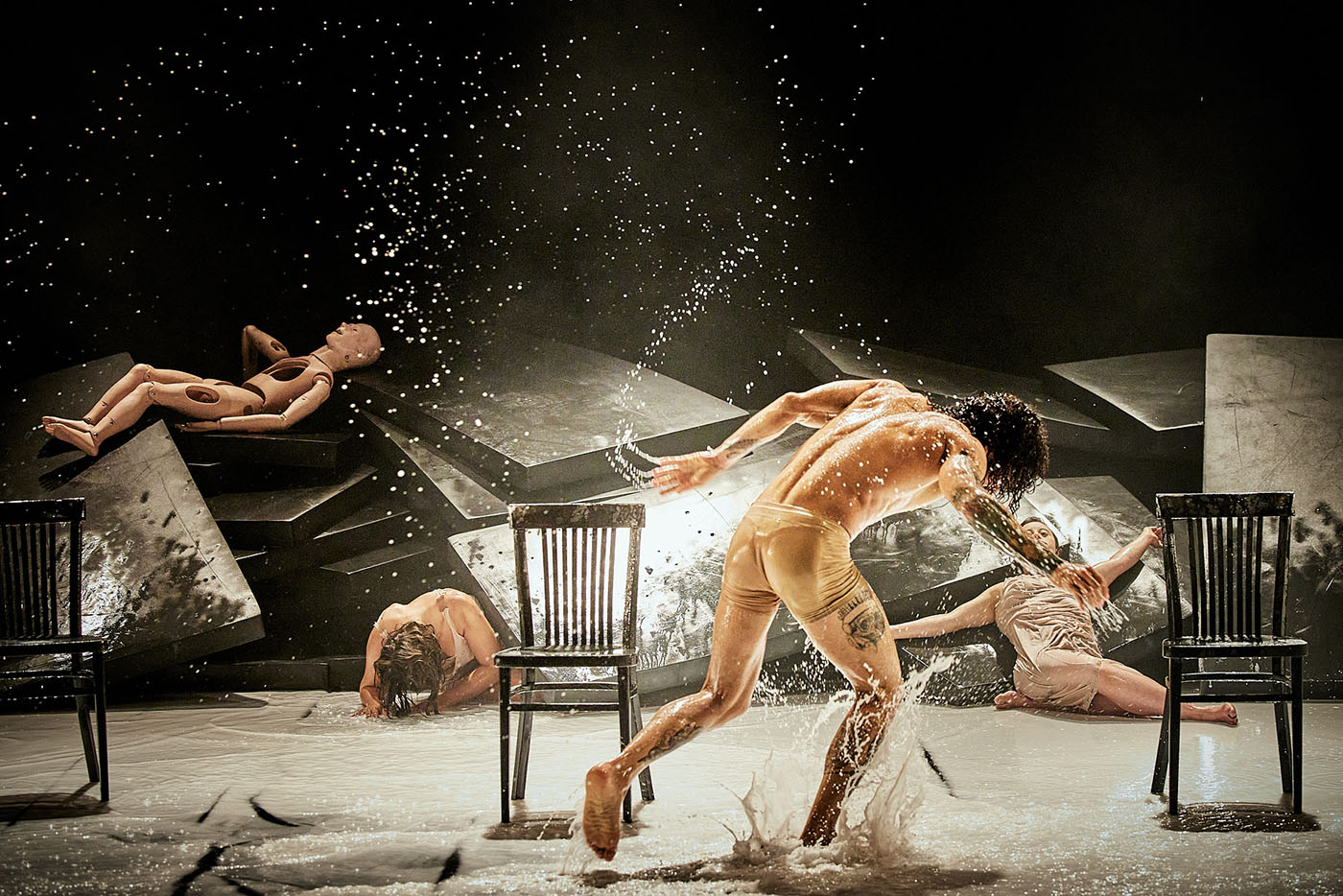
Nada Ghosn
This year the 76e edition of the Avignon Festival presents a rich theatrical program, with exceptional participation by a number of artists from the Arab world, Iran and Afghanistan. Between those living abroad and those who have taken refuge in France or who have chosen to settle here, they all have in common their commitment to similar themes: women and minorities in a globalized, migratory world in which we’re all struggling to move forward.
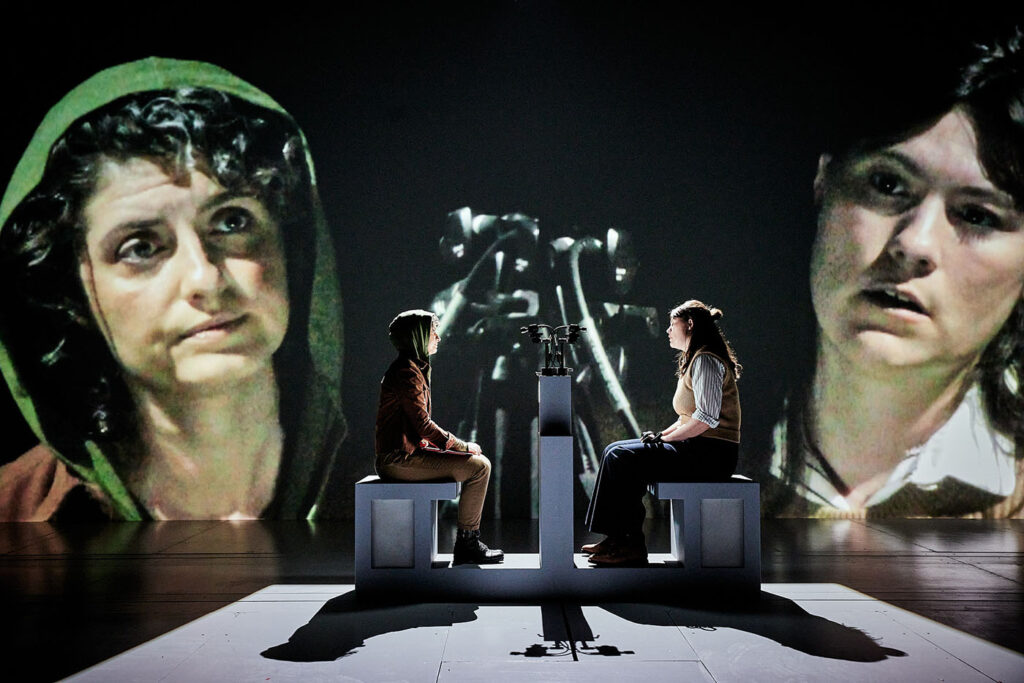
Migrants, symbol of the absurdity of the world
Freely adapted from the novel Transit by Anna Seghers, the new creation by Iranian Amir Reza Koohestani En transit, produced by the Comédie de Genève, is inspired by the misadventure of the playwright and director, who was arrested and detained in a European airport a few years ago. Despite being extremely active in both Germany and France since 2006, the 43-year-old Koohestani lives at least six months a year in Iran, where he is very appreciated and where he continues his critical work, denouncing both the shortcomings of globalization and the evils of Iranian society.
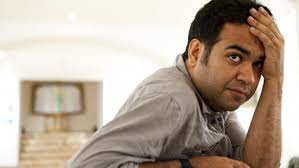
In 2018, while on his way to Chile to attend one of his plays, Koohestani was taken into custody by the border police at Munich airport and then sent back to Tehran, on the grounds of having overstayed his Schengen Zone visa by five days. “What I was able to figure out, in that waiting room where I was only kept for a few hours, is a rather frightening system that knows perfectly well that it is not being watched, and that uses the word deportation to talk about the fate of the people it turns away at the border,” he says.
Reading Seghers’ novel, Koohestani recognized the pain point, the root of which lies exactly in the cul-de-sac of a transit zone. From this coincidence between his experience and the material of the novel, he decided to create a play. The story straddles two temporal zones in which a character named Amir, an Iranian director, finds himself parked in 2018 in the so-called “waiting room” of a European airport, where other characters from Anna Seghers’ novel — deserters, Jews, writers, artists, German opponents of Nazism — appear in transit, who, in 1940, are also waiting to embark on a journey to somewhere else to survive.

Mothers omnipresent on stage
Two Lebanese artists, Hanane Hajj Ali and Ali Chahrour, are also presenting this year. Figuring prominently are Lebanon’s economic collapse and popular uprising in October 2019, followed by the Covid-19 pandemic, then a series of confinements, and finally the deadly explosion in the port of Beirut on August 4, 2020, which devastated much of the city, and made living and working conditions nigh impossible.
In spite of this endless series of setbacks, as of March 2021 choreographer Ali Chahrour’s troupe has returned in hopes of saving what remains of his project: dancing the intimate stories and victories of the mothers. After a trilogy about funeral rituals, the current performance is about love. It brings together a first piece entitled Layl-Night and now a second, Du temps où ma mère racontait.
This latest piece is rooted in intimate and heartfelt chronicles, iconic stories of mothers and their families, some of whose members are lost or missing. “We tell their stories for the survival of memory. Some families stay to tell and sing on stage, to preserve what remains. They dance to survive,” he explains.
Originally scheduled as part of the 74e Festival d’Avignon of 2020 — cancelled of course due to the Covid pandemic — the performance brings together Laila Chahrour the mother with her 18-year-old son Abbas, who decided to join the ranks of the fighters for Syria in 2017. Alongside them dances Ali Chahrour in a work where his kinship with Laila is intertwined with the story of his aunt Fatima, and her journey to find her son, Hassan, missing in Syria since 2013.
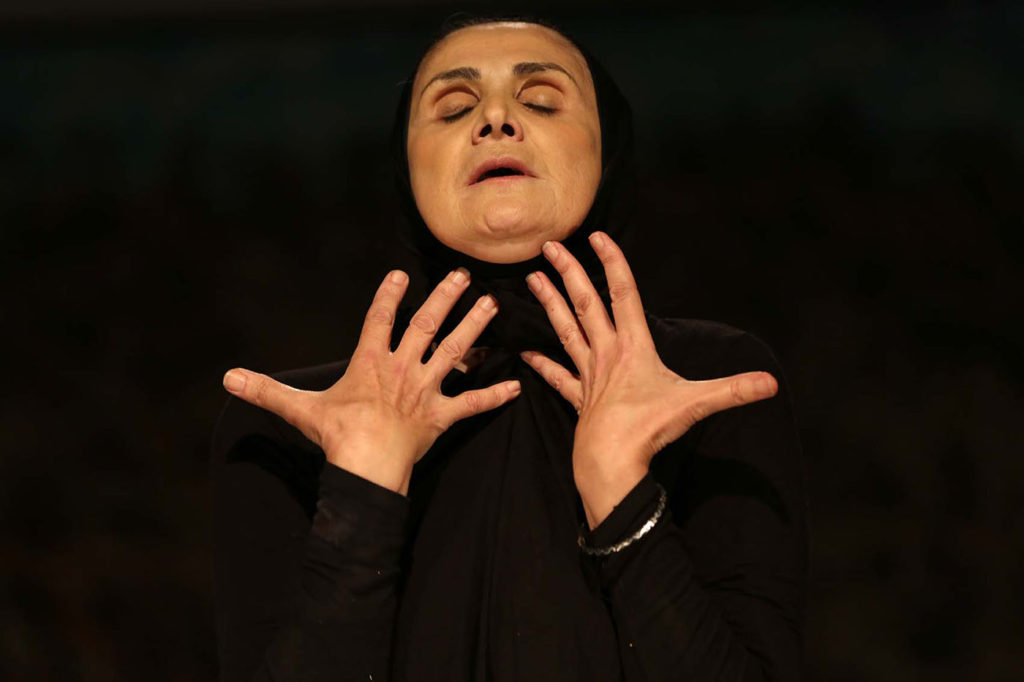
They are joined by the Syrian actress Hala Omran, as well as musicians Ali Hout and Abed Kobeissy, whose musical approach refers to the cultural heritage of Arab folk songs, principally the songs of families during moments of joy and sorrow. The performance thus stages the intimate network of family difficulties and tragedies braved by mothers through their bodies and voices, their micro wars lodged in the homes of Beirut and its suburbs.
“I don’t want to be buried. Mom, I don’t want to rot in the ground. I don’t want my eyes and my heart to be covered with dust. I don’t want anything to tie me to this country…. I disown it,” declares Hanane’s son, played by actress and author Hanane Hajj Ali, a prominent figure in the Lebanese cultural scene, in her performance Jogging, chosen for the In program as a consecration of her career.
Hanane, a woman in her fifties, jogs daily in the streets of Beirut to fight osteoporosis, obesity and depression. While running, she revisits her dreams, her desires, her disillusions. The effects of this daily routine are contradictory, as it stimulates two hormones in her body: dopamine and adrenaline which, in turn, prove to be destructive and constructive in the heart of a city that destroys to build and builds to destroy. Alone on stage, Hanane, the wife and mother, reveals her identity by embodying different faces of Medea, one inside the other, like Russian dolls.
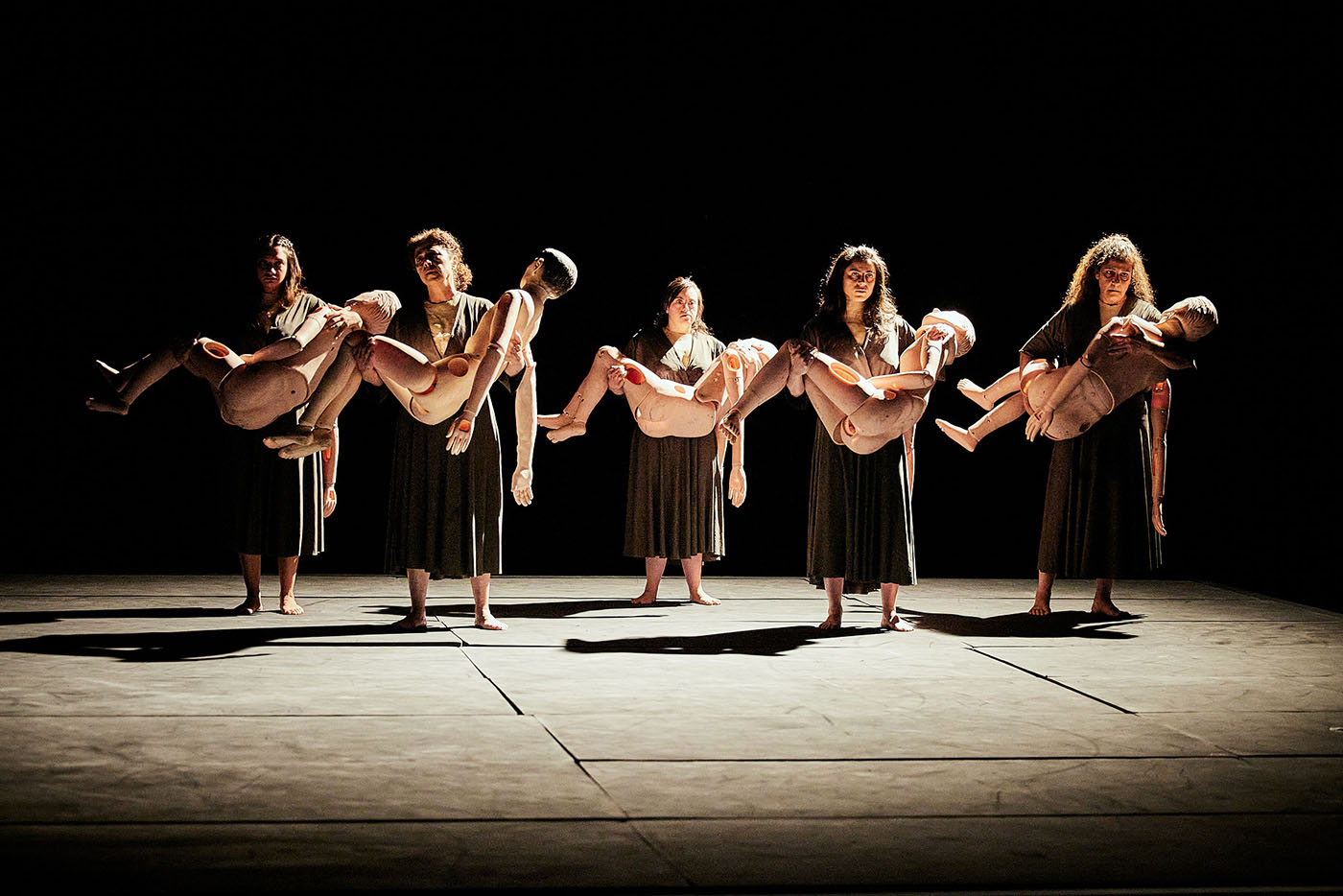
Aesthetics of the post-disaster
Milk, a work-in-progress by Palestinian director and author Bashar Murkus in collaboration with the Khashabi collective, is about catastrophe. Not about the causes of a disaster, nor its type, nor its consequences, but the way it divides time into two: the before and the after. Milk takes place in this rift of time where time itself collapses, extending over an indefinite period of time.
“How does a disaster happen? In an instant. How does it end? Never, it folds.“
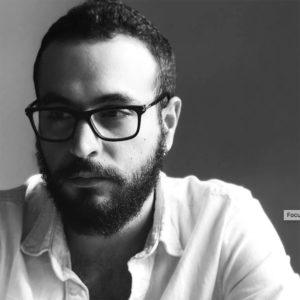
Thus in Milk, the spectator first sees an empty room inside which images accumulate in a black silence. Suddenly, bodies enter, bodies rush in, bodies are carried, helpless corpses fill the space. Lost men, parched women crying for milk from their breasts, an excess of milk that no one drinks, soldiers stealing the milk.
And the bodies pile up, carried away by the living who are exhausted. The women embrace the bodies of the dead and then turn them into earth. The earth sinks and fills the scene which becomes a field, its grass is yellow, the women water it with their milk, it becomes a paradise. Later, the paradise will be destroyed.
A mother refuses to let her son come out of her womb because she is afraid for him. He reaches puberty inside her womb, but eventually comes out and with his first steps buries his mother. A mother claims the stolen corpse of her son, the soldiers tear his flesh and stone her with it, while grief turns her into a dog, her language becomes howling.
The black pieces pile up and become a mountain, a mountain that resists climbing, on which it is impossible to stand. Bodies descend from his pickaxe, and above, the women’s legs melt and expand. The incapacity deforms the women. Milk overflows from all sides, milk of death, not of birth. White paints over black, white erases black, white erases everything.
The patriarchy at the bench
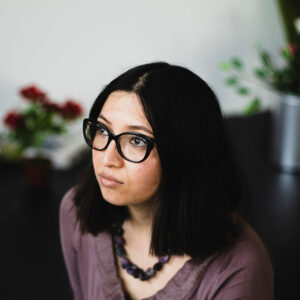
In parallel to Avignon’s plays and performances the Lambert Collection presents, as it does every year, a temporary exhibition at the Museum of Contemporary Art in Avignon, through August 31, featuring Kubra Khademi, the Afghan feminist painter and performer who has been a refugee in France since 2015, who displays her new series First but not Last Time in America.
Born in 1989 in Afghanistan, Kubra Khademi develops a multidisciplinary work whose aesthetic feeds as much on medieval Persian poetry and iconography as on the most contemporary artistic practices, abolishing space-time boundaries with an extraordinary jubilation.
In this new series, Khademi creates a world that resembles a fresco, in which the battles of ancestral tapestries, led this time by women, emerge. Their heroic gestures are adorned with singular words: Persian poetry, both epic and modern, popular poetry known as “under the navel,” but also the slogans brandished in the street today by Afghan women against the Taliban. These women evolve within mythological narratives devolved to men, or situations that, with beauty and humor, free themselves from patriarchy.
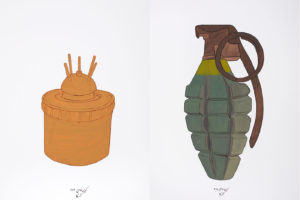
Also at the Collection Lambert, the festival is screening Focus Iran, a documentary film about five young artists, four of whom are women, which offers a parallel encounter with creative photography, and an image of a country as complex as it is unexpected.
Contemporary Arab women poets
The Shaeirat project, which means “poetesses” in Arabic, is a modular program of performances, each performed by the Arabic poetess who wrote it. These readings, each lasting about an hour, are finely crafted in their scenic dimension and incorporate, often from their conception, the French translation of the poems, with English versions also available.
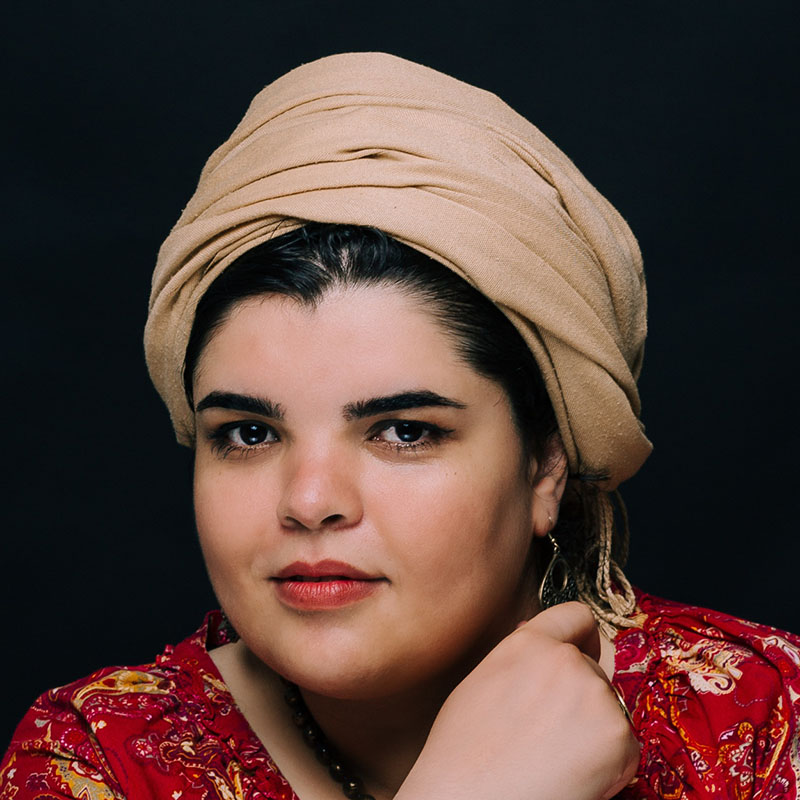
Shaeirat is envisioned as an activism whose vocation is to give voice to new Arab poetic voices on both sides of the Mediterranean. If each of the performances has its own autonomous life and a singular history, with performances spread over the season in the Arab countries, the invitation to the Festival d’Avignon 2022 constitutes the collective birth of the project.
In Dodo ya Momo do, Soukaina Habiballah interweaves the voices of a grandmother and her granddaughter who speak to each other through the mother’s absence, and two haunting themes: the grandmother’s post-colonial trauma and the granddaughter’s post-partum depression.
In her reading, Soukaina Habiballah, who is perfectly bilingual, interweaves the Arabic and French versions of the poem cycle: as if the two voices were alternating in her own body, her own psyche as a poet. The sound artist Zouheir Atbane creates for this reading an environment from recordings of immemorial Moroccan lullabies that Soukaina Habiballah has recorded from old Moroccan women in several languages: Amazigh, Darija, Sahraoui…
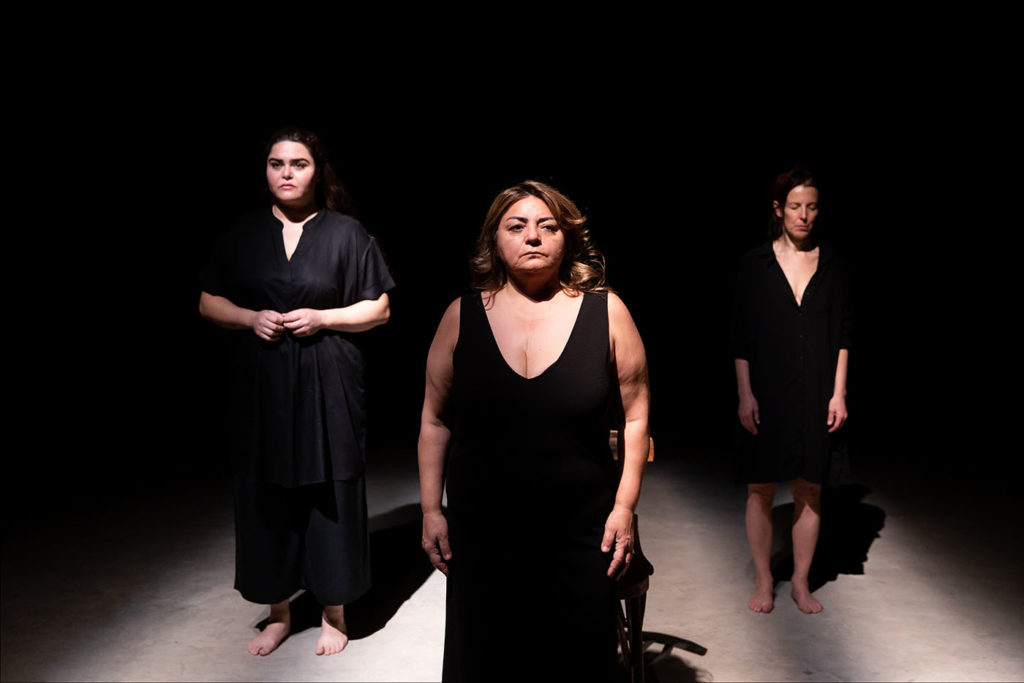
She Who Lived in the House Before Me is a series of monodramas of the “I” of a single woman who lives in an apartment in the downtown area of a megacity haunted by the single woman who lived there before her.
Loneliness, isolation, failures in love, feelings of loss, the show is a three-voice oratorio: the Arabic voice of the poet Rasha Omran; the French voice of the Syrian actress Nanda Mohammad; and in an unidentified idiom, the unheard voice of the improviser Isabelle Duthoit.
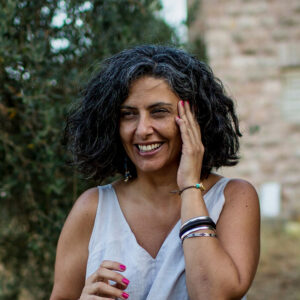
Carol Sansour’s In the Season of Apricots is a tour de force: the poem cycle seems to embrace the entire life experience of a woman poet who happens to be Palestinian. One finds, without being able to untangle them, daily life and politics, desires, childhood memories, motherhood. The insistent memory of the mother is like the refrain of this long, finely chiseled song.
(Excerpt)
I’ll plow everywhere and then I’ll go away
At the press of your soul
And in the tavern of your body
I will get drunk
I will surrender to your hands
Time will pass
You and I
Everywhere we will be
Aware of our deep sadness
We force our bodies through infinite tunnels
Where the world is working to perfect its plans to exterminate our children
Q: Are you an Arab artist?
A: Me? God forbid! Thank God I am a criminal. On me the mercy and the grace of God.
Mornings with green, yellow and honey tones
In apricot season
The smell of caramelizing sugar
Children play in the dust
And my mother is making coffee
Milk, tea
My mother
In apricot season
Always my mother
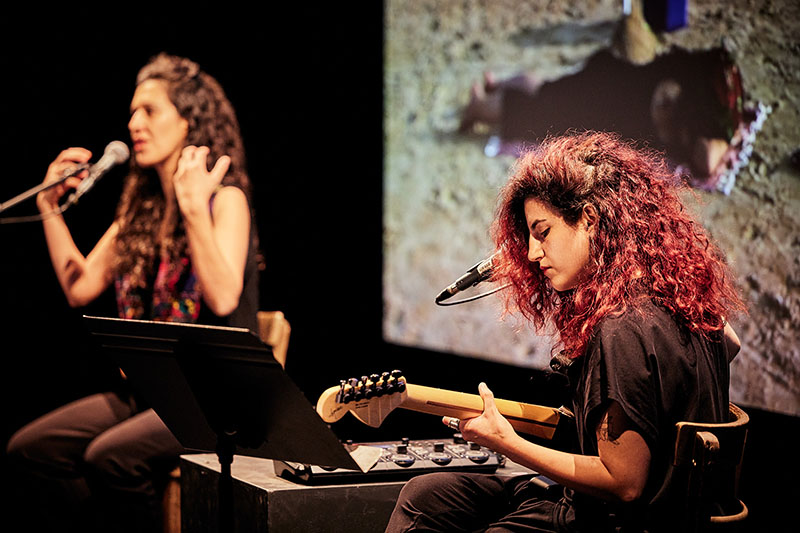
Don’t believe me if I tell you about the war is a poetic performance in three voices where Asmaa Azaizeh‘s deep, almost masculine voice, whose power echoes the strength of her own poems, dialogues with Haya Zaatry’s vocals and guitar and electro melody. The poems are worked like songs and the two young women, who look like twins, stand out on fascinating still video shots. The poet’s mother sitting on her diwan, the waves of the Palestinian Mediterranean, the old city of Haifa create a paradoxical intimacy with the performers and offer an ideal acoustic for the intensity of the voices.
(Excerpt)
Millions of years ago, winged creatures did not exist.
To get anywhere, we all crawled on our bellies and short legs.
We didn’t get anywhere, but our bellies were chafing at the hardness of the ground. Then our legs started to grow like mountains. And every time we stopped in the shade of a tree, one of us would shout, “We’re there!” But it was only an illusion, higher than the mountains.
Millions of years ago, dragonflies emerged from ugly little rivers. The water weighed on their backs like a heartbreak, so they asked the universe for wings, so they could make out the anguish as clearly as the stones in the riverbed.
Since then, we all fly.
Millions of wings and planes darken the sky and roar like hungry locusts.
But not one has asked the universe to deliver us from the illusion of arrival.
And our hearts continue to clench.
Also performing are the Palestinian intellectual and translator Elias Sanbar and Franck Tortiller and band, staging the poems of Mahmoud Darwish, the great Palestinian poet of the land and the homeland, to music. A spirited jazz oratorio, the piece Et la terre se transmet comme la langue (And the earth is transmitted like language) speaks of the pain of exile, and resonates with the current situation head on. You can explore the complete season 76e Festival d’Avignon season here.



